Proactive Ship Hull Cleaning: Bellona and Armach Partner Up
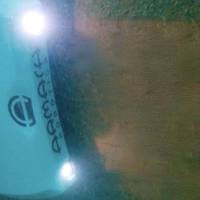
"Biofouling is a global problem, and to solve a global problem we need to collaborate globally. This collaboration aims to accelerate the uptake of proactive hull cleaning, as well as to understand the limits and risks with such solutions, say CEO of Bellona, Hallstein Havåg and VP Growth and Strategy at Armach Robotics, Rob Howard.The build-up of marine life on ships’ hulls – biofouling – is an age-old problem for the environment, for ship operators, and for the international shipping industry.
Molten Salt Reactors: Maritime’s Nuclear Option
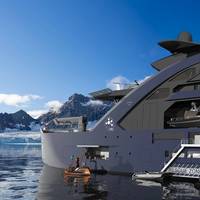
A race is being run by nuclear scientists and ship designers. The prize? “Decarbonization’s” holy grail — believed to be a “small” thorium-fueled, molten-salt rector’s unlimited power to propel sea trade. At the same time, a recently revived discussion among leading marine-nuclear thinkers revolves now around how to put an ultra-modern, as-yet non-existent marine reactor aboard a modern commercial vessel. As with nuclear power generally, shipborne reactors produce national discussion first, then discovery.
World's First: Wartsila Intros Hybrid Retrofit
The Finnish technology group Wärtsilä has signed an agreement with the international shipping company Hagland Shipping AS for a hybrid retrofit installation.The project will take place onboard the ‘Hagland Captain’, a general cargo vessel owned by Hagland Shipping. It will be the first project of its kind ever in short-sea shipping applications. The agreement was signed in December 2018.The installation of a Wärtsilä battery hybrid propulsion solution will significantly enhance the ship’s environmental performance by reducing its emissions, fuel consumption, and noise. Included in the solution are a shore power connection to provide power for loading/unloading operations and for battery charging…
Huge Increase in Arctic shipping
Data from Russia’s ports and Northern Sea Route show that the volume of goods being shipped out into the Arctic waterway are up by 25 percent 2018.According to information from the Russian Transport Ministry, a total of 92.7 million tons was handled by regional seaports, of which almost 70 percent was oil products and liquified natural gas.The biggest increases came in Sabetta, which sits on the icy Yamal Peninsula in the Kara Sea, according to Bellona. With Novatek’s $27 billion Yamal LNG project now in commercial production, Sabetta has seen a 130 percent increase in the volume of cargo it handles – up to 17.4 tons for 2018.Ports in Murmansk alone handled some 60 million tons of cargo in 2018 – an 18.1 percent boost over volumes from the year before.
Maritime Decarbonization: The Path Starts in Norway
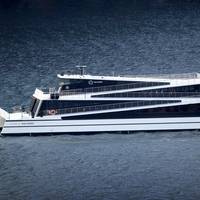
Breaking new ground: the all-electric, zero-emissions Future of The FjordsNorwegian cruise vessel offers amazing tourist experience while protecting fragile UNESCO World Heritage environmentFuture of the Fjords, the world’s first all-electric and completely emissions-free ship, launched in April this year by Norwegian tours operator The Fjords, is now operating as a cruise vessel on the spectacular Gudvangen to Flåm route along the Nærøyfjord, Sognefjord and Aurlandsfjord of western Norway.
CSC Welcomes Commitment to Decarbonise Shipping
The commitment by governments to require international shipping to decarbonise and at least halve its greenhouse gas emissions by 2050 is a welcome and potentially game changing development, the Clean Shipping Coalition (CSC) has said. But the lack of any clear plan of action to deliver the emissions reductions, including urgently needed short-term measures, is a major concern, according to the group of NGOs with observer status at the UN’s International Maritime Organisation (IMO). After two weeks of difficult talks, countries attending the IMO meeting in London agreed to require the shipping sector to reduce its emissions by “at least 50% by 2050 compared to 2008”. This falls short of the 70-100% cut by 2050 that is needed to align shipping with the goals of the Paris agreement.
Cruise Ships & Environmental Risk: ‘No Silver Bullet’
LONDON - “Sustainability is core to the cruise industry; but there is no silver bullet or one solution to fit all.” This was the key message that echoed across the panel of speakers at Thursday, November 16, 2017, IMMEDIASEA Shipping Debate Forum in London. The lively discussion between representatives of Carnival Corporation, Wartsila Marine Solutions, Bellona, DNV GL, Jotun and Hurtigruten highlighted a shared vision of a green and sustainable future for the industry. There are concerns with the rise in popularity of remote and environmentally delicate destinations such as Norway, Greenland, and the Polar regions, adding pressure to the cruise industry to adopt sustainable practices.
Future of the Fjords: New Zero Emission Passenger Vessel
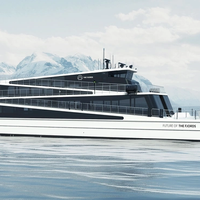
The Fjords DA has confirmed that is building a sister ship to the diesel-electric plug-in hybrid Vision of the Fjords, launched in 2016. However, unlike its predecessor, this 42m long carbon fibre vessel will be all electric and completely emission free. The Future of the Fjords is slated for launch in April 2018. Currently under construction at specialist shipbuilder Brødrene Aa, the new vessel retains Vision of the Fjords’ eye-catching ‘mountain path’ design and environmentally friendly build, with a hull that minimizes wake and reduces shoreline impact erosion.
Tide Carrier Under Arrest in Norway
After having been informed by the NGO Shipbreaking Platform and its member organisation Bellona that the Tide Carrier (now named HARRIER, aka EIDE CARRIER) had been sold for illegal, dirty and dangerous scrapping to a South Asian beaching facility, the Norwegian environmental authorities arrested the ship on Tuesday 5 April. The vessel is not allowed to leave Norway unless it is to sail to a ship recycling destination in line with international and European hazardous waste laws. According to the Norwegian Environment Agency, it is the first arrest of a vessel in Norway for the illegal export of hazardous waste. The Platform had been informed already during the summer of 2015 that the ship was sold for scrap.
Hurtigruten Signs on to Ban HFO in the Arctic
Expedition cruise ship operator Hurtigruten has joined international environmental organizations in efforts aiming to spearhead the protection of Arctic communities and ecosystems from risks posed by the use of marine heavy fuel oil (HFO) to power ships. At the Arctic Frontiers conference in Tromsø, Norway, Hurtigruten CEO Daniel Skjeldam signed the Arctic Commitment along with Dr. Sian Prior of the Clean Arctic Alliance, lead advisor to the Clean Arctic Alliance, an international coalition of environmental organizations campaigning for a ban on heavy fuel oil use in the Arctic. “The Arctic Commitment makes a clear challenge to businesses…
Jotun:ISO 19030 standard can make $30 bln impact on the industry
The International Organization for Standardization (ISO) has now published the long-awaited ISO 19030, a new standard conceived to measure changes in ship-specific hull and propeller performance. According to Jotun, which has led the industry in the standard’s development, the move has the potential to reduce the industry’s green house gas emissions by 10%, while saving operators up to USD 30 billion in annual energy costs. ISO 19030 has been more than three years in the making. It’s seen a collaboration of 53 expert stakeholders from throughout the industry working together to develop a uniform framework for measuring the efficacy of solutions improving hull and propeller performance.
Damen joins World Ocean Council
Dutch-based Damen Shipyards Group has become the latest member of the World Ocean Council (WOC). The global shipbuilder headquartered in the Netherlands is the first European shipbuilder to join the WOC, the international business leadership alliance on ocean sustainability, science and stewardship. Damen works to reduce environmental impacts of shipping, by focusing on optimizing ship design and working on product innovations. This has resulted in, for example, the E3 label, applying to new Damen designs that are environmentally friendly, efficient in operation and economically viable. In addition, Damen recently formed partnerships with the Bellona Foundation, the Oslo-based institute for sustainable environmental solutions, and with the BlueTec Tidal Energy project.
World Ocean Council Welcomes Damen
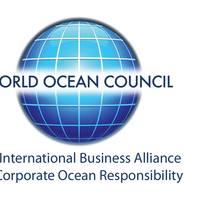
Damen Shipyards Group has become the latest member of the World Ocean Council (WOC). Damen is the first European shipbuilder to join the WOC, the international business leadership alliance on ocean sustainability, science and stewardship. By focusing on optimizing ship design and working on product innovations, Damen works to reduce environmental impacts of shipping. This has resulted in, for example, an in-house E3 label, applying only to new Damen designs that are Environmentally friendly, Efficient in operation and Economically viable.
Damen, Bellona Partner on Low-emission Designs
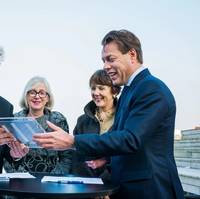
A three-year partnership has been launched between Oslo-based NGO Bellona Foundation and Dutch company Damen Shipyards Group with the main goal of exploring and developing concept vessels for the future. The agreement was officially signed March 18 during an industry event in Stavanger. The Bellona Foundation and Damen both acknowledge that today’s global shipping industry will need to undergo substantial change to achieve its own climate and environmental objectives. The NGO…
Norway to Relaunch Carbon Capture Plan
Norway's government will this spring launch a strategy to develop technology for capturing and burying heat-trapping emissions from polluting industries, aiming to make good on a pledge to build a full-size plant by 2020. Proponents of carbon capture and storage (CCS) hope the oil-rich nation will join Britain and the Netherlands in funding a handful of schemes to keep Europe from falling behind other major economies in adopting the technology. Europe had once aimed to take a global lead in the development of CCS, which bodies such as the International Energy Agency view as essential to meet a globally agreed goal of limiting temperature rises to 2 degrees Celsius.
Spent Nuclear Waste Lurks Beneath Arctic Ice
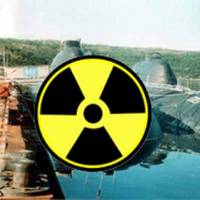
Large-scale Soviet nuclear tests, dumping of spent fuel and two scuttled nuclear-powered submarines are a major source of pollution in the Arctic ocean, reports 'The Moscow Times'. There are 17,000 containers and 19 vessels holding radioactive waste submerged in the Kara Sea, as well as 14 nuclear reactors, according to a report passed by Russia to the Norwegian authorities in 2012, says 'The Moscow Times' citing Bellona, an environmental group that acquired a copy of the document. The sinking of nuclear material and scuttling of ships used to be widespread practice.
One Step Closer to Hull and Propeller Measurement Standards
Jotun released a statement welcoming action taken by the International Standards Organization to mobilize an expert group to start work on a common industry standard for measurement of changes in hull and propeller performance. Jotun, in cooperation with the Bellona Foundation (Bellona) and Standard Norway, has been successful in mobilizing shipping industry stakeholders in an effort to reach general agreement on a method for measuring changes in hull and propeller performance, the company said. By improving hull and propeller performance, the world fleet can reduce fuel cost by as much as $30 billion per year and achieve an estimated 0.3% reduction in manmade GHG emissions.
Most Dangerous Ship in Europe Sails
Last voyage for Russian nuclear waste hulk 'Lepse' as she heads out of Murmansk Port for a lengthy decommissioning. Rosatomflot and Bellona have worked with many international partners and governments to develop a proper risk-assessment plan for a safe decommissioning of “Lepse” – and of course found funding for the work,” Frederic Hauge of the Bellona Fournation told the 'Barents Observer'. Getting “Lepse” safely out of Murmansk and decommissioned has been a high profile case for Europe’s nuclear safety cooperation with Russia in the north for nearly two decades. In 2008, the European Bank of Reconstruction and Development (EBRD) granted €43 million to the decommission work. When the vessel arrives at the Nerpa naval yard the damaged spent nuclear fuel will have to be removed.
Russian Nuclear Sub Trapped On Bottom
More than 100 Russian sailors are reportedly trapped in their nuclear-powered submarine on the sea bed off northern Russia, after technical faults apparently forced them to shut down the nuclear reactor, the navy said. Reuters reported that Russia's independent NTV television station said the cause of the accident was flooding of the torpedo tubes and front section of the submarine Kursk, and said a power shutdown might lead to problems with oxygen supplies. The navy could not be contacted to confirm the details of the accident. The head of the navy's press office, Igor Dygalo, said earlier that unspecified technical faults had forced the Kursk to settle on the sea bed after training exercises in the Barents Sea, most of which lies in the Arctic circle north of European Russia.
Norway Holds Emergency Meeting Regarding Sub
Norway called a meeting of a crisis team for radioactive accidents on Monday, August 14, after technical faults forced a Russian nuclear submarine to run aground on the sea bed off northern Russia. "The crisis commission for atomic accidents has been alerted to the situation, and will meet this afternoon to go over the available information," the Norwegian Radiation Protection Authority said. The authority would try to compile all information on the accident, from Russia, other Nordic countries and the Norwegian armed forces, before the meeting of officials in the commission to decide whether any action was needed. Norway has long feared radioactive pollution from its eastern neighbor.
Norway Looks to Arctic Oil Exploration
The 22nd License Round announced by Minister of Petroluem and Energy Ola Borten Moe includes as many as 72 blocks in the Barents Sea, several of them near the polar ice ridge, reports the 'Barents Observer'. And Norwegian Arctic drilling will not stop with the 22nd License Round. According to Borten Moe, his ministry is ready to take it all the way to the 84th latitude, the northernmost point in Norwegian waters. In his meeting this week with high-ranking international politicians, including U.S. Secretary of Interior Ken Salazar, as well as a number of powerful oil company representatives, the Norwegian minister made it very clear what he intends to do in the area. For environmentalists, the signals from the Norwegian government are bad news.






